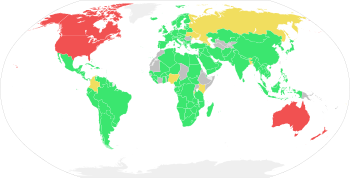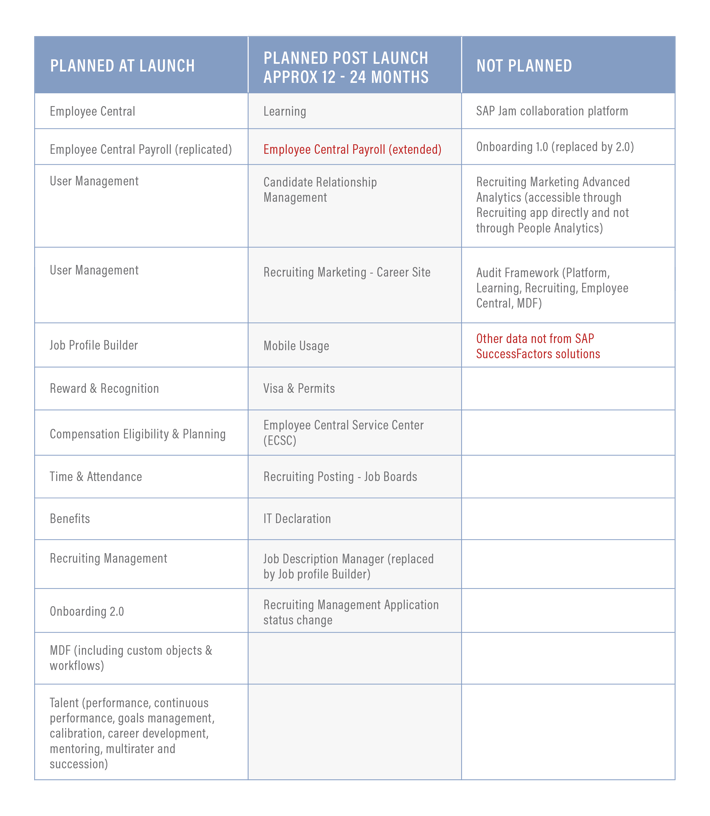Self-Attested Declaration: Ensuring Transparency in Hiring

A self-attested declaration for no family member in government job is a written statement by an individual confirming that no family members are employed by the government. This declaration serves as a personal certification of this employment status.
Crafting a self-attested declaration is a straightforward process that involves a personal confirmation of your family’s employment status, specifically asserting that none of your family members hold a position in a government job. This kind of declaration often forms a part of various application processes where an individual’s or their family’s relationship with government employment could be relevant.
Whether it’s for scholarship applications, certain types of government aid, or other official procedures, having the correct documentation can streamline the process. It’s important to ensure that the information you provide is truthful and up-to-date since false declarations can have legal consequences. Precision, clarity, and honesty are paramount when drafting such declarations, as they serve as legal documents in the eyes of the entities requesting them. Remember, providing a self-attested declaration is akin to bearing witness to the fact, and as such, it must be taken seriously and filled out with care.

Credit: en.wikipedia.org
Contents
- 1 The Rise Of Self-attested Declarations In Recruitment
- 2 Key Components Of A Self-attested Declaration Form
- 3 Why Transparency In Hiring Matters
- 4 Challenges And Risks Associated With Self-attestation
- 5 Best Practices For Implementing Self-attestation In Hiring
- 6 Future Of Self-attestation In A Digital World
- 7 Frequently Asked Questions Of Self-attested Declaration For No Family Member In Government Job
- 8 Conclusion
The Rise Of Self-attested Declarations In Recruitment
In the dynamic world of recruitment, self-attested declarations are becoming a game-changer. Gone are the days of cumbersome paperwork and the long wait for clearance. Applicants now often provide self-attested declarations, particularly when stating that they have no family members in government jobs—a detail crucial for certain vacancies. This shift simplifies the process, ushering in transparency and efficiency.
Traditional methods of verification often involved multiple layers of bureaucracy. They required physical copies of documents validated through lengthy government protocols. Today’s recruiters embrace a more streamlined approach. Applicants simply sign a statement affirming the truthfulness of their claims—a self-attested declaration for no family member in a government job, for example.
- Reduces paperwork
- Speeds up the recruitment process
- Empowers candidates
Self-attestation streamlines hiring, creating a win-win situation for all parties involved.
| Benefits for Employers | Benefits for Candidates |
|---|---|
| Faster verification | Quicker application process |
| Lower administrative costs | Less documentation to manage |
| Immediate eligibility check | Enhanced privacy |

Credit: www.epiuselabs.com
Key Components Of A Self-attested Declaration Form
When creating a Self-Attested Declaration for no family member in a government job, accuracy is crucial. This document serves as a personal affidavit stating that no relatives are employed by the government. It ensures transparency and eligibility for certain benefits or positions. The key components must be clear, complete, and comply with official guidelines.
Essential Information To Include
The form must contain specific details to be valid. Ensure completeness with these must-haves:
- Full Name: As it appears on official ID.
- Date of Birth: For age verification.
- Contact Details: Includes address, phone, and email.
- Declaration Statement: Claim about no family in government service.
- Date and Place: When and where you’re making the declaration.
- Signature: Your signature for authenticity.
Design Considerations For Clarity And Compliance
A well-designed form ensures completeness and understanding. Follow these guidelines:
| Design Element | Reason |
|---|---|
| Simple Layout | Enhances readability and guides the user. |
| Legible Font | Ensures all information is easily read. |
| Clear Sections | Separates information for quick reference. |
| Instructions | Guides filling out the form correctly. |
| Compliance Marks | Shows form meets legal standards. |
Why Transparency In Hiring Matters
Transparency shapes the backbone of ethical hiring practices. It plays a crucial role in establishing trust and fostering an inclusive workplace. When companies openly declare hiring policies, such as requiring a self-attested declaration for no family member in government job positions, they ensure fair play. Let’s delve into how clarity in the hiring process catalyzes positive change within organizations.
Building Trust With Prospective Employees
Trust is the foundation of any strong relationship, including the one between employers and potential employees. By implementing transparent hiring practices, like requesting a self-attested declaration, organizations demonstrate integrity.
- Builds credibility: Candidates perceive the hiring process as fair and unbiased.
- Encourages honesty: Applicants are more likely to be forthcoming with their own information.
- Enhances reputation: A transparent hiring process boosts the organization’s image as an ethical employer.
The Impact On Organizational Culture
The hiring process is a reflection of the company’s values and affects its culture profoundly. A transparent approach in requesting a no family member in government job declaration serves as a clear indicator of the organization’s dedication to meritocracy.
| Effect on Organizational Culture | Beneficial Outcomes |
|---|---|
| Promotes equality | Fosters a sense of justice and impartiality among staff. |
| Encourages diversity | Brings in diverse talent from different backgrounds. |
| Improves engagement | Employees feel valued and more engaged in their work. |
Institutionalizing transparency not only attracts talent but also retains it by nurturing a work environment grounded in respect and openness.

Credit: authorservices.taylorandfrancis.com
Challenges And Risks Associated With Self-attestation
When talking about self-attested declarations, trust is key. Yet, not everyone plays by the rules. Self-attestation means stating something is true, without third-party checks. This is tricky when declaring no family in government jobs. Such claims can give unfair advantages. There is a risk people may lie. Let’s delve deeper.
Mitigating The Danger Of False Information
Checking facts is vital. Even a simple form can trick us. People might give false info to get benefits. We must tweak the system:
- Cross-check with official records. This helps find the truth.
- Use digital tools to match data from different sources.
- Educate applicants on the risks of lying.
Legal Implications And How To Safeguard Against Them
Law is clear: lies can lead to trouble. An untrue self-declaration is a risk. It may result in:
- Job loss: If lies are found, a job offer can vanish.
- Fines or jail: Laws may punish false statements.
Stay safe:
- Always speak the truth. Honesty saves from legal action.
- Keep records of what you declare. This proves statements if asked.
Best Practices For Implementing Self-attestation In Hiring
Self-attestation is a crucial step in the hiring process. It ensures applicants disclose any significant information, like family employment in government roles. Let’s explore the best practices to enforce self-attestation in hiring.
Integrating Technology In Verification Processes
Advancements in technology simplify verification. Here’s how employers can leverage tech:
- Use online forms to gather self-attested information.
- Implement digital signature software for authenticity.
- Create a database to store and cross-reference declarations.
- Employ automated background checks to verify declarations.
Digital solutions reduce human error and enhance efficiency.
Educating Applicants On The Importance Of Accurate Declarations
Ensuring applicants understand the self-attestation process is key:
- Provide clear instructions on how to self-attest.
- Highlight the legal implications of false declarations.
- Offer resources for any questions or help needed.
- Emphasize transparency and honesty as core values.
Educated applicants make accurate declarations, leading to a trustworthy hiring process.
Future Of Self-attestation In A Digital World
The Future of Self-Attestation is transforming with the digital world. Imagine declaring no family member in a government job seamlessly online. This future is closer than you think. Below, we’ll explore technologies making this a reality.
Evolving Technology And Secure Digital Platforms
Advancements in technology are making self-attestation more secure and accessible. Users can now submit declarations with just a few clicks. Here’s how the process is being simplified:
- Online Forms: Fill out and submit from anywhere.
- Verification Checks: Instant background scans.
- Data Encryption: Keeps personal information safe.
These platforms ensure accuracy and security. Your information is protected while the declaration process is streamlined.
The Role Of Blockchain And Smart Contracts In Verification
Blockchain technology adds another layer of security to self-attestation. With blockchain, each declaration becomes an unchangeable record. Here’s why it’s beneficial:
| Feature | Benefit |
|---|---|
| Immutability | No one can alter your declaration. |
| Smart Contracts | Automated verification without human errors. |
| Decentralization | Reduced reliance on a single entity for data integrity. |
Smart Contracts automatically execute tasks when conditions are met. This ensures only accurate, self-attested declarations are accepted.
Frequently Asked Questions Of Self-attested Declaration For No Family Member In Government Job
How Do I Write A Declaration For Myself?
To write a personal declaration, start by stating your full name. Clearly outline your intentions or beliefs. Sign and date the document to validate it. Keep the content honest and direct to ensure authenticity and personal alignment.
What Is Self Attested Self Declaration Form?
A self-attested self-declaration form is a document where individuals certify their statements by their own signature, confirming the information provided is true and accurate.
What Is A Self-attested Declaration?
A self-attested declaration is a written statement confirming that no family member holds a government job. It is personally authenticated by the individual signing it, without needing notarization.
Why Provide A No Family Member In Government Job Declaration?
Such a declaration is often required to confirm eligibility for certain government schemes or jobs reserved for non-government employees’ families, ensuring equitable distribution of benefits.
Conclusion
Navigating the intricacies of government job application prerequisites is crucial. Drafting a self-attested declaration for no family member in government service is no exception. This statement, pivotal in ensuring transparency and adherence to hiring policies, must be crafted with precision.
As we’ve explored, understanding the requirements and accurately presenting your family’s employment status can make a significant difference in your application’s success. Keep your declarations honest and your documentation in order for a smooth recruitment journey.




